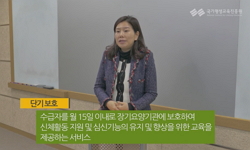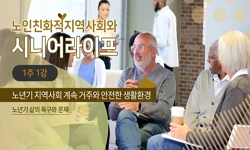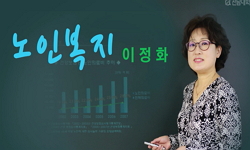가장 빠른 속도로 고령화가 진행되고 있는 우리나라에서 노인의 건강과 복지, 안전과 삶의 질은 매우 중요한 사회 문제가 되었다. 복합적 만성질환으로 다제약제를 장기간 복용하는 노인들 ...
http://chineseinput.net/에서 pinyin(병음)방식으로 중국어를 변환할 수 있습니다.
변환된 중국어를 복사하여 사용하시면 됩니다.
- 中文 을 입력하시려면 zhongwen을 입력하시고 space를누르시면됩니다.
- 北京 을 입력하시려면 beijing을 입력하시고 space를 누르시면 됩니다.
https://www.riss.kr/link?id=T16074706
- 저자
-
발행사항
포천 : 차의과학대학교 일반대학원, 2022
-
학위논문사항
학위논문(석사) -- 차의과학대학교 일반대학원 , 약학과 임상사회약학 , 2022. 2
-
발행연도
2022
-
작성언어
한국어
- 주제어
-
발행국(도시)
경기도
-
형태사항
75 ; 26 cm
-
일반주기명
지도교수: 손현순
-
UCI식별코드
I804:41065-200000601029
- 소장기관
-
0
상세조회 -
0
다운로드
부가정보
국문 초록 (Abstract)
가장 빠른 속도로 고령화가 진행되고 있는 우리나라에서 노인의 건강과 복지, 안전과 삶의 질은 매우 중요한 사회 문제가 되었다. 복합적 만성질환으로 다제약제를 장기간 복용하는 노인들 중 특히 퇴행성질환이나 소화기질환 등으로 인한 연하장애를 겪는 경우 복약 불순응으로 이어져 치료목표 도달에 제약이 따른다.
본 연구는 우리나라 65세 이상 노인을 대상으로 고형 경구약의 제형 개선의 필요성에 대한 인식을 조사하고자 수행되었다. 총 17개 문항으로 구성된 설문지는 노인들의 약물사용 실태와 복약 순응도에 대한 인식, 고형 경구제 복용 경험과 문제점, 경구약의 제형을 개선의 필요성에 대한 인식과 추가비용 지불의향, 그리고 응답자의 특성을 조사하도록 설계되었고 모두 폐쇄형 질문 방식을 적용하였다. 차의과학대학교 생명윤리심의위원회로부터 심의면제 확인을 받고 2021년 10월부터 11월까지 온라인 및 오프라인으로 대상자를 편의표본추출방식으로 모집하였다. 수집된 설문지 응답정보는 Microsoft Excel 2019를 이용하여 입력, 코딩되었다. 설문 문항별 응답 분포는 기술통계분석방법으로 응답자수(n)와 빈도(%)로 제시하였고 응답자 특성에 따라 약의 사용 실태, 알약 복용경험 및 노인 친화형 약제 제형 개선의 필요성에 대한 인식에 유의한 차이를 나타내는지 Chi-square test를 실시하였고 유의수준은 0.05를 적용하였다. 모든 통계분석은 SPSS Ver.2.1 프로그램을 사용하였다.
총 421명의 노인이 본 조사에 참여하였다. 292명(69.4%)이 여성이었고, 연령은 65-70세가 214명(50.8%)으로 절반을 차지하였다. 만성질환 유병자는 311명(73.9%)이었고 구강건조나 위식도역류 같은 소화기질환이 117명(27.8%), 뇌졸중, 다발성경화증, 치매, 알츠하이머, 파킨슨병과 같은 신경퇴행성질환 유병자는 55명(13.2%)이었다. 처방약 복용자는 345명(81.9%)이었으며 1일 복용 알약 수가 5개를 초과하는 경우는 99명(23.6%), 산제를 복용하는 노인은 29명(6.9%)이었다. 질병치료를 위하여 처방약을 잘 복용하는 것이 중요하다는데 동의한 노인은 360명(85.5%)이었다. 알약을 삼키기 어렵다는 노인은 147명(34.9%)이었고 알약 삼킴이 어려워 복약을 하지 않은 경험을 갖고 있는 노인은 113명(26.8%)이었다. 알약 삼킴의 어려움이나 그로 인한 미복용 경험은 나이가 많을수록, 복용 알약 수가 많을수록, 소화기질환이나 신경퇴행성질환이 있을 때 유의하게 높았다.
270명(64.1%)은 알약 제형을 개선할 필요성에 동의하였고, 이는 남성보다 여성이, 자택거주자보다는 요양원 등 시설거주자가, 독거노인이, 그리고 알약 삼킴에 어려움이 있거나 그로 인한 미복용 경험이 있는 경우 유의하게 높았다. 선호하는 제형으로는 산제가 83명(19.7%), 액제가 243명(57.7%)으로, 액제 선호도가 더 높았다. 한편 제형 개선에 대한 추가 비용 지불 의향이 있는 비율은 218명(51.8%)으로 절반을 넘었고, 40-60%의 추가 비용을 수용하겠다는 응답자가 84명(20.0%)으로 가장 높고 그 다음으로 10-30%가 81명(19.2%)이었다.
본 조사에서는 노인들이 복약순응의 중요성을 잘 알고 있고 알약 삼킴의 어려움을 극복하기 위해 제형 개선의 필요성을 가지고 있고 추가비용을 지불할 의향 또한 있음을 확인할 수 있었다.
노인특화제형이 충분히 제공되지 못하여 처방된 고형경구약을 약국에서 산제화하여 조제하는 임시방편적 대처는 약물의 안정성이나 불순물 혼입, 궁극적으로는 약물효과나 안전성 측면에서 적절한 방안이 될 수는 없다. 노인 인구의 지속적 증가를 고려할 때 연하곤란 문제가 수반될 수밖에 없는 노인에게 약물복용의 편의성을 통한 복약순응도 증가와 안전한 약물사용 측면에서 노인친화형 제형에 대한 관심과 근본적인 해결책을 찾아가기 위한 논의의 시작점이 되었으면 한다.
다국어 초록 (Multilingual Abstract)
As the elderly population is rapidly increasing in Korea, the health, welfare, safety and quality of life of the elderly become very important social issues. Among the elderly who take multiple medicines for a long time due to various chronic diseases...
As the elderly population is rapidly increasing in Korea, the health, welfare, safety and quality of life of the elderly become very important social issues. Among the elderly who take multiple medicines for a long time due to various chronic diseases, especially those who suffer from swallowing disorders due to degenerative diseases or digestive diseases, this cause medication non-compliance, which limits the achievement of treatment goals.
The purpose of this study was to identify problems related to the use of oral solid drugs in the elderly aged 65 or older and to investigate preferences for the elderly-friendly formulation. The questionnaire consisted of a total of 17 questions, and was designed to investigate the elderly's drug use, perception of the importance of medication compliance, experience and difficulty of taking oral solid drugs, and the need to improve oral formulations, and their socio-demographics. All of them was closed-ended questions. This study was exempted from deliberation by the Institutional Review Board of CHA University, and questionnaires were collected online and offline from October to November 2021 using a convenience sampling method. The collected information was input and coded using Microsoft Excel 2019. Responses for each question were presented as the number of respondents (n) and frequency (%) as a descriptive statistical analysis method. Chi-square test was conducted to find out whether there were significant differences in the status of drug use, experience of taking solid oral drugs, and the perception of the need for improvement of the elderly-friendly drug formulation according to the characteristics of the respondent. The significance level was 0.05 and all statistical analysis was performed using SPSS Ver.2.1 program.
A total of 421 elderly people participated in this study. The results showed that 292 (69.4%) respondents were women, and 214 (50.8%) respondents were aged 65-70 years old. There were 311 (73.9%) respondents with chronic diseases, 117 (27.8%) respondents with digestive diseases such as dry mouth and gastroesophageal reflux, and 55 (13.2%) respondents with neurodegenerative diseases such as stroke, multiple sclerosis, dementia, Alzheimer's, and Parkinson's disease. There were 345 (81.9%) respondents who took prescription drugs, 99 (23.6%) respondents who took more than 5 pills per day, and 29 (6.9%) respondents who took power drugs. 360 (85.5%) respondents agreed that it is important to take prescription drugs well for disease treatment. 147 (34.9%) respondents had difficulty swallowing pills, and 113 (26.8%) respondents had the experience of not taking pills due to difficulty swallowing them. Difficulties in swallowing pills or the experience of not taking pills were significantly higher when the older, the higher the number of pills taken, and when they had digestive or neurodegenerative disease.
270 (64.1%) respondents agreed on the need to improve the pill formulation, which was significantly higher for women than men, for facility residents such as nursing homes, for elderly people living alone, and for those who had difficulty swallowing pills or had the experience of not taking pills due to the difficulty swallowing them. As for the formulation of the drug, 83 (19.7%) respondents preferred powder formulation, 243 (57.7%) respondents preferred liquid formulation, and the preference for liquid formulation was relatively higher. Meanwhile, 218 (51.8%) respondents had a willingness to pay additional costs for improved formulation. 84 (20.0%) respondents accepted 40-60% of additional costs, followed by 81 (19.2%) respondents accepted 10-30% of additional costs.
Through this study, it were examined that a lot of the elderly were well aware of the importance of medication compliance, recognized the need to improve formulation to overcome the difficulty of pill swallowing, and also they were willing to pay additional costs for improved formulations.
Although the elderly-friendly formulations are not properly provided, an alternative to powdering prescribed pills at pharmacies can not be an appropriate solution due to drug stability, impurity inflow, and ultimately drug effects and safety issues.
Considering the continued increase in the elderly population, it is hoped this study will be a starting point of discussion to find a fundamental solution and interest in elderly-friendly formulations to improve drug compliance and safe drug use.
목차 (Table of Contents)
- 1. 서론 1
- 2. 이론적 고찰 5
- 2.1. 노인인구 증가 5
- 2.2. 노인의 연하장애와 복약의 어려움 6
- 2.3. 경구고형제의 산제화 조제의 문제점 6
- 1. 서론 1
- 2. 이론적 고찰 5
- 2.1. 노인인구 증가 5
- 2.2. 노인의 연하장애와 복약의 어려움 6
- 2.3. 경구고형제의 산제화 조제의 문제점 6
- 2.4. 노인 친화형 제형 개발의 필요성 8
- 3. 연구 목적 11
- 4. 연구방법 12
- 4.1. 설문지 개발 12
- 4.2. 설문지 문항 구성 12
- 4.3. 조사대상자 및 조사기간 16
- 4.4. 통계분석 17
- 5. 연구결과 18
- 5.1. 응답자의 특성 18
- 5.2. 노인들의 의약품 사용 실태 및 복약순응도에 대한 인식 21
- 5.3. 알약 복용에 대한 경험 23
- 5.4. 노인이 먹는 약의 제형 개선 필요성 및 제형 선호도 25
- 5.5. 응답자 특성별 알약 삼킴의 어려움의 차이 28
- 5.6. 응답자 특성별 알약 삼킴의 어려움으로 미복용한 경험의 차이 31
- 5.7. 복용 중인 의약품 특성에 따른 알약 복용경험의 차이 34
- 5.8. 복약 순응도 인식에 따른 알약 복용경험의 차이 38
- 5.9. 인구사회학적 특성에 따른 알약 제형 개선 필요성에 대한 인식의 차이 41
- 5.10. 질병 특성에 따른 알약 제형 개선 필요성에 대한 인식의 차이 44
- 5.11. 알약 삼킴 어려움의 경험에 따른 알약 제형 개선 필요성에 대한 인식의 차이 46
- 5.12. 알약 삼킴 어려움에 따른 산제 또는 액제 개발 선호도 차이 48
- 5.13. 1일 복용 알약 수에 따른 알약 제형 개선 필요성에 대한 인식 차이 50
- 5.14. 산제 복용 여부에 따른 알약 제형 개선의 필요성에 대한 인식의 차이 51
- 5.15. 인구사회학적 특성에 따른 개선된 제형에 대한 추가 비용 지불 의향 차이 53
- 5.16. 질병 특성에 따른 개선된 제형에 대한 추가 비용 지불 의향 차이 56
- 6. 고찰 58
- 6.1. 연구결과 고찰 58
- 6.2. 연구의 제한점 62
- 7. 결론 63
- 참고문헌 64
- [부록] 설문지 70
- Abstract 72












